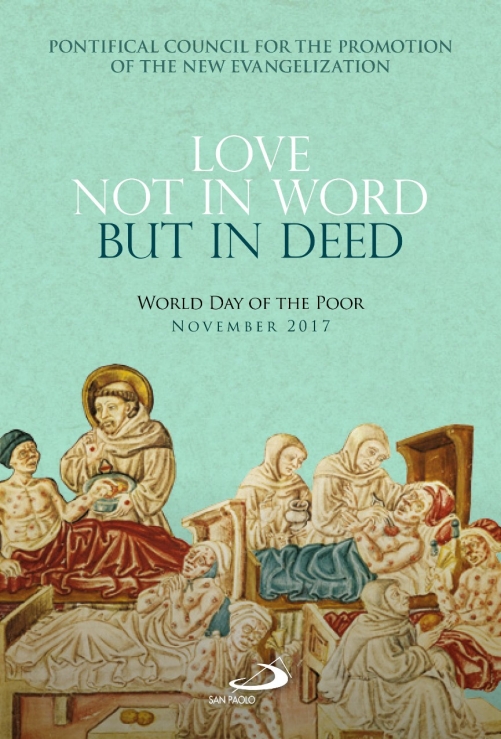Pastoral aid

Love not in word but in deed
Presentation
“We may think of the poor simply as the beneficiaries of our occasional volunteer work or of impromptu acts of generosity that appease our conscience. However good and useful such acts may be for making us sensitive to people’s needs and the injustices that are often their cause, they ought to lead to a true encounter with the poor and a sharing that becomes a way of life” (Message for the First World Day of the Poor, n. 3). This quote from Pope Francis highlights his purpose for instituting the World Day of the Poor. The Church cannot be a passive spectator in the face of the drama of poverty, and Christians cannot content themselves with a sporadic and fragmented participation in order to quiet their consciences.
The moment of taking action may be a sign of a true conversion that brings one to sharing. The key word for entering into this Message is truly that of sharing, which becomes a way of life. Pope Francis offered the paradigmatic example of Saint Francis of Assisi, who was not content to embrace the leper and give him alms, but understood that true charity consists in standing together, close to one another, considering the pain and suffering of the other’s disease, as well as the distress of his marginalization. The culture of encounter leads to sharing, through which the other is no longer a stranger, but is perceived and treated as a brother or sister who needs me.
The Message for the World Day of the Poor centers around the motto and logo that seek to express, with simple and direct language, its profound content. The motto illuminates the logo and; vice-versa, the logo renders the teaching of the motto concrete and efficacious. “Love not in word but in deed”: this phrase comes from the First Letter of Saint John, where it is the prelude to the culminating text that, for the first and only time reveals the very nature of God. “God is love” (1 Jn 4:8), the Evangelist affirms, and this love was expressed in God’s sending the Son to save humanity.
This teaching calls to mind what John had already taught in his Gospel: “God so loved the world as to give his Son” (John 3:16). In this “giving” all of the love of the Father is expressed, who does not hold anything back for himself, but gives everything to the very end, without limit. This Word is the Son in his concrete existence who, above all, wanted to reveal his love for the poor, elevating them first to beatitude in his kingdom (Mt 5:3). God loves in this way: making his Word become action and life.
The logo expresses the double relationship that is established in an encounter with the poor person. He is at the door and holds out his hand to ask for help. Above the door, however, he finds another person who holds out his hand because he also is asking for help. There are two hands being held out: both help. One causes the other to go out, the other reaches out to give support.
These two arms express solidarity and lead a person not to remain on the threshold of the door, but to go out to encounter the other. The poor person can enter into the house once the person inside the house has understood that help is sharing.
We present here this small booklet as a simple aid to priests and all volunteers who want to live these days more intensely in preparation for the World Day of the Poor. As Pope Francis suggested, prayer should be the foundation of this concrete effort to bring forth the Christian value of our solidarity. Charity, exercised by those who are committed to working against the multiform situations of poverty, will not be lacking the creative imagination that is proper to Christians, in order to better express attention, nearness, and sharing with the poor.
Rino Fisichella
President of the Pontifical Council for the Promotion of the New Evangelization



